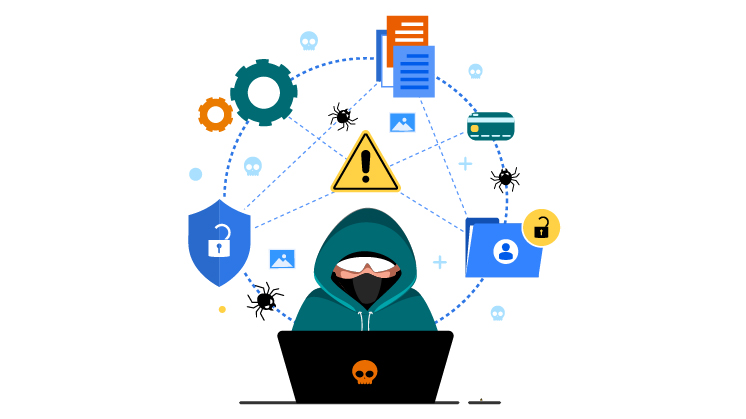E-commerce has become a fundamental cornerstone of online businesses worldwide. It provides consumers with accessibility, affordability, customization, and convenience globally.
Our dependence on digital platforms has drastically increased as we reside in a digitally driven world. Therefore, businesses that belong to the e-commerce field will have to take cybersecurity measures alongside impactful license management practices.
This guide will discuss the significance of cybersecurity in the e-commerce industry. Moreover, it will highlight the usage of license management in e-commerce businesses.
What is the Importance of Cybersecurity and Software License Management in E-commerce?
The role of cybersecurity in the e-commerce industry is critical. Businesses in the e-commerce realm need to understand the significance of cybersecurity in this modern age.
Otherwise, they may be in the hot waters of cyber risks and issues. Similarly, software is more vulnerable in this era due to evolving cyber threats. Therefore, software license management has become the need of the hour.
Software license management helps e-commerce companies progress in the upward direction. It allows them to enhance their productivity by supervising an array of software licenses simultaneously.
As more and more e-commerce firms and businesses turn to modern technology, the role of SLM (software license management) is becoming more dominant and results-driven.
In reality, e-commerce license management is integral to software asset management (SAM). It enables businesses to attain the critical advantages of modern tech appropriately.
For instance, effective license management lets WooCommerce businesses improve their cybersecurity postures.
It helps them identify, reduce, and eliminate potential risks associated with rogue, unauthorized, and vulnerable software from their respective IT environments.
Benefits of Cybersecurity and License Management Integration in E-commerce

When small or large business firms operating in the e-commerce sphere integrate cybersecurity with license management, they maximize their productivity considerably.
A relationship between cybersecurity and license management in E-commerce lets consumer-oriented businesses thrive in this post-COVID-19 era, where cyber attacks keep evolving rapidly.
For example, businesses can build their reputation by improving reliability, authenticity, and integrity. Reliability means companies can only allow authorized personnel to access data and systems when needed.
As for authenticity, companies can safeguard the identity of the people who send data to them. Lastly, integrity means organizations must authorize personnel before deleting or making any changes to data.
Therefore, they can rely on a license manager in E-commerce, an impactful tool for online businesses, enabling them to manage multiple software licenses under one roof.
E-commerce cybersecurity and license management are needed to enhance businesses’ reputation and productivity.
Businesses can obtain the following key benefits when using information technology security and software license management in parallel:
- Database protection is possible. Companies can safeguard their servers, networks, and endpoints from hackers and other cybercriminals.
- Companies can efficiently manage IT costs by supervising software usage over time.
- Businesses can keep themselves compliant with the laws and regulations, standards, and practices related to software usage.
Contemporary E-Commerce Cybersecurity Practices to Secure Businesses From Cyber Threats

E-commerce businesses must follow some of the best cybersecurity practices to safeguard their products and services from cyber threats. Here is the list that includes these cybersecurity practices:
- Application of complex passwords
- Regular data backup
- Use of two-factor authentication
- Employees’ and vendors’ cybersecurity training
- Updation of hardware and software
- Implementation of an incident response plan (IRP)
Future E-commerce Trends and Challenges

E-commerce businesses are prone to numerous cyber risks and issues. These firms usually exist online and use different digital platforms to promote their products and services.
Let us take an example of online shopping; this trend will continue to rule the e-commerce industry in 2024 and beyond.
Unsurprisingly, 21.9% of all sales will take place online in 2024. Likewise, 23% of all sales will happen online in 2025.
Therefore, the role of cybersecurity and license management in the e-commerce industry will be crucial, considering the significance of online sales in the coming years.
Here are a few trends that will influence the impacts of the e-commerce industry in the future.
Mobile Shopping
The M-commerce trend will increase rapidly as mobile devices are responsible for 55% of internet traffic. In addition, using 5G technology will improve mobile commerce and digital experiences overall.
So, cybersecurity issues will rise accordingly. Hackers and other cyber thieves can easily target mobile phone users worldwide. E-commerce businesses and platforms must devise a result-oriented approach to tackle this dangerous issue.
Omnichannel Commerce
Omnichannel commerce will play a key role in boosting online shopping experiences. This trend helps potential shoppers enjoy a consistent experience when using multiple devices and platforms.
Customer Experience
Customers’ choices and preferences will transform the landscape of the e-commerce industry. E-commerce companies must take all the necessary steps to offer personalized experiences to new and current customers.
For instance, they can benefit from the practical application of e-commerce license management. The concept lets them manage multiple software licenses effortlessly.
Similarly, using this notion, businesses can make the most of software licenses by keeping track of several attributes like license usage and renewal requirements, expiration dates, etc.
Those firms that excel in these processes will likely improve customer relationships and loyalty. Additionally, they can increase their performance from a sales and revenue perspective.
Software License Management Market (Current & Future Scenario)
The software license market size will continue to expand in 2024. The market expects to reach $1.29 billion in the current year. It will grow at a CAGR (compound annual growth rate) of 10.06% in the next five years. The market will reach $2.08 billion by 2029.
Wrapping Up
We hope you liked our guide that helps you realize the role of cybersecurity and license management in the e-commerce sphere.
To reduce potential cyber vulnerabilities in today’s connected yet riskier environment, e-commerce companies must work closely with external and internal partners, like vendors, customers, employees, etc.
Thus, e-commerce businesses, either large or small, should improve their current cybersecurity practices to protect themselves from potential cyber risks and threats appropriately.
In this scenario, they should understand the importance of a license manager in e-commerce. This powerful tool is ideal for e-commerce shops and retailers to improve and manage their software license usage.
